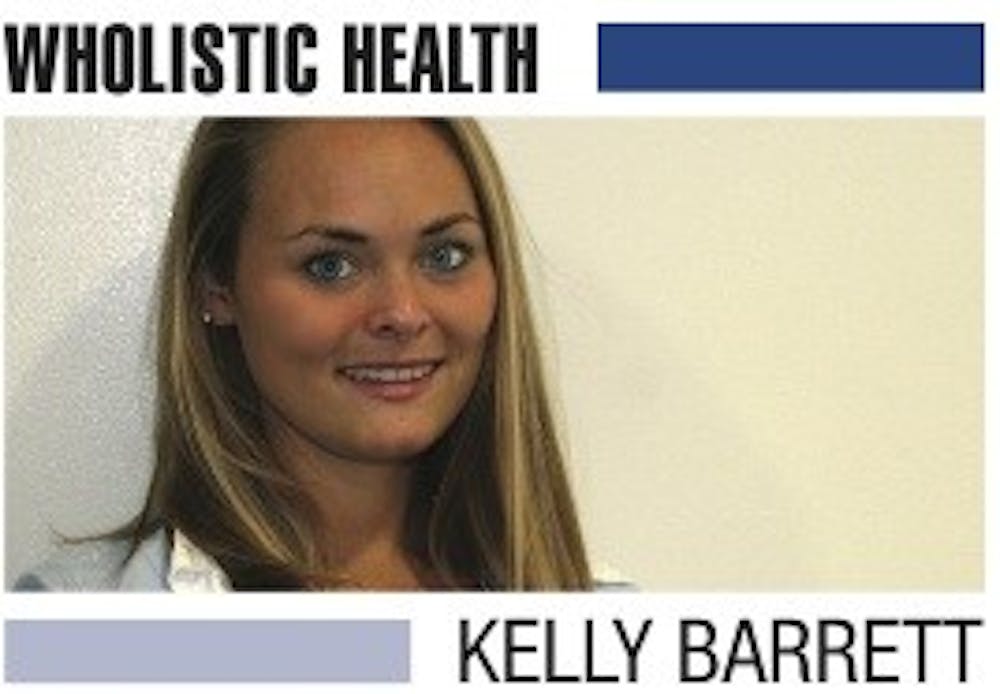Our country is caught in quite the health care crisis. In 2007, The Agency for Healthcare Research and Quality estimated that 27 percent of Americans under the age of 65 are uninsured — a total of nearly 54 million people. They estimate the number has gone up since then, following the rise of the unemployment rate.
Here, however, AU requires that all students have health insurance, whether it is their own, their parents’ or the AU sponsored health insurance plan (which is the plan that, according to the health center, approximately 3,105 have).
I think most of us can agree this is a good thing. But while having health insurance is preferable to going without, it doesn’t leave you completely free of financial burden.
A personal anecdote to this issue involves an occasion a couple of years ago when I was referred to a doctor in the area who was listed in the AU health insurance providers online. I walked in and sat down for a 10-minute appointment. Meanwhile, the woman at the front desk had been talking to my insurance company on the phone. She was told I had not yet paid towards the $150 deductible in my plan for that year, and that I owed the additional 20 percent of the doctor’s fee. Because that doctor charges an exorbitant $350 per consultation, my bill for that appointment totaled over $200.
Whoa, seriously? I told the woman I didn’t have a credit card or checkbook on me, hoping she’d send me off with a bill in hand. She stared me down and told me there was an ATM across the street. Shocked and sort of embarrassed, I went and took out the money, walked back, handed it to her and never returned. Never feel obligated to return to a doctor’s office that makes you feel uncomfortable or threatened in any way — that’s not what you’re paying for.
I wonder, though, what she would have done if I didn’t have the money in my account — call the police, an on-the-spot bill collector, a hit man? It’s hard to say these days. I had a chat with the Student Health Center Director Dan Bruey afterwards, who said they should not have pulled that kind of stunt and that the SHC would no longer refer its patients to the office. If you have the AU health insurance plan and ever have a problem with a doctor you are referred to, you need to report it to the SHC. They are very responsive to complaints.
This incident got me thinking. While both health care providers and insurance companies shouldn’t treat you like that, they are perfectly entitled to — and many will. It’s not good business practice, but they will do it anyway. They are not your friends; they need to turn a profit. And that is why you have to protect yourself and know your rights, too. I have come up with a non-exhaustive list of tips that will hopefully help prevent you from unnecessary stress and expenses.
1. Know the lingo. Your premium is the amount you pay in total just to have the insurance. If you have health insurance through AU, as a student you pay $1,550 per year. Your deductible is the amount you pay before your coverage will kick in. Some people don’t have deductibles at all, while others have $2,000 deductibles. Essentially, the insurance company won’t pay for anything until you’ve paid this amount toward your doctor’s bills. Last, some plans have a co-payment, with a smaller, set fee that you pay at the time of service and the rest typically gets billed to the insurer. The co-pay for a doctor’s visit at the SHC this year is $20, no matter what insurance type you have.
2. Know your doctor’s payment policies and how much they charge per visit before you go there. If they have an issue about telling you any of that information, tell them they just lost a potential patient.
3. Make sure your doctor is an in-network provider before you book the appointment. They might tell you they will “submit” to your insurance — that’s no good. They must be in-network.
4. Call your insurance company and find out if they cover a certain procedure, prescription or specialist visit beforehand. Insurance companies don’t often cover specialist visits, like with physical therapists or nutritionists.
5. Make sure you get the proper referrals from your general practitioner or your insurance may deny your claim. If you have AU insurance and are in the D.C. area at the time, you must get a referral from the SHC or else your claim will be denied.
6. Do not lose any paperwork such as bills, lab-work, x-rays and itemized receipts for payments you have made. Keep it all in a safe place.
7. Try to negotiate with a doctor if you are having expensive treatment. Just make sure you get all of that arranged and in writing beforehand. Sometimes, the billing office will work out a payment plan with you if you are upfront and explain to them how much you can afford per month.
It’s important to think about this stuff and read the fine print while you are healthy and your head is on straight. Because if something happens and you end up having to rush to the emergency room, the last thing you will want to worry about is how you are going to pay for it all.
And to graduating students: if you are listed under your parents’ insurance plan, the general rule is that you have a six-month window after graduation before you get kicked off. If you have the AU plan, that will expire in August.
Cheers to finding a job with good benefits.
You can reach this columnist at kbarrett@theeagleonline.com.





